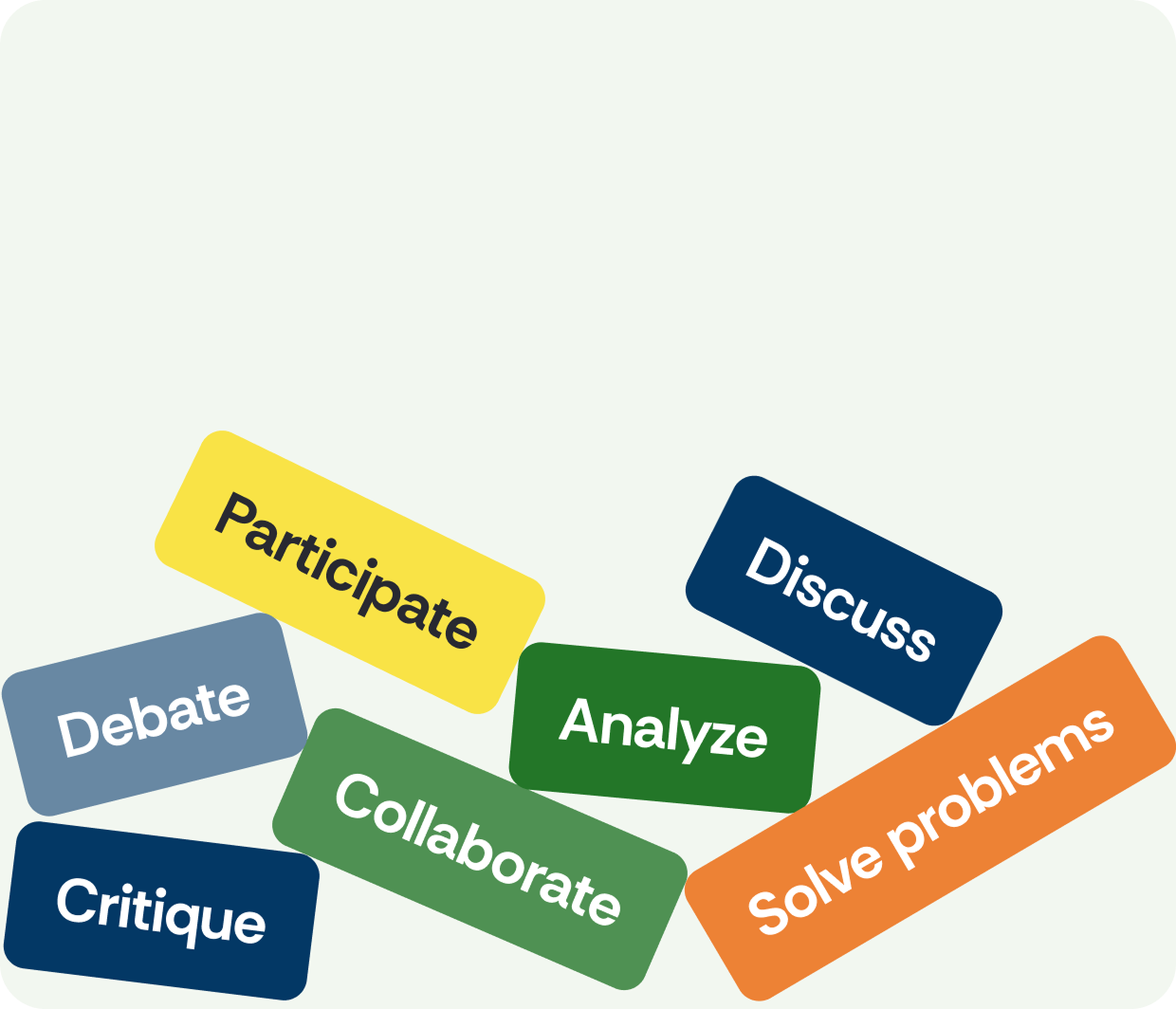Programmatic Assessment supported by FeedbackFruits
Unleash the power of assessment through multiple low-stakes data points that center feedback.

What is programatic assessment for learning?
Programmatic assessment is an assessment model developed by van der Vleuten et al. (2012) which challenges the traditional formative-summative paradigm by integrating plural learning data (such as paper, tests, presentations, student reflections) from diverse low-stake assessments across time.
This model is often associated with a competency-based approach and creates a portfolio solution with rich data and rich information. Every data point is optimized for learning by giving meaningful feedback to the student, centering formative dialogue, reflection, and progress. Eventually, assessment decisions (high stakes or summative decisions such as grades or promotion to the next course of year level) are made by an independent committee, based on multiple data points.
This model is often associated with a competency-based approach and creates a portfolio solution with rich data and rich information. Every data point is optimized for learning by giving meaningful feedback to the student, centering formative dialogue, reflection, and progress. Eventually, assessment decisions (high stakes or summative decisions such as grades or promotion to the next course of year level) are made by an independent committee, based on multiple data points.

Why programatic assessment?
Programmatic assessment creates a safe space for students to demonstrate their learning through a mix of assessment methods such as assignments, peer feedback, presentations, oral exams, etc., and to engage in dialogue with teachers who provide continuous feedback. Students develop self-awareness, set goals, and self-assess, while an independent committee handles summative decisions, reducing bias and empowering self-directed learning.
Book a demoReduce grading bias for more accuracy
Programmatic assesment helps ensure that all students can receive more accurate grades that show their learning, and can truly realize their potential.

Andel et al. 2019
Broadly sampled assessment reduces ethnicity-related differences in clinical grades
Move beyond traditional assessment
Through its emphasis on a mix of assessment formats, Programmatic assessment improves decision-making validity, reduces bias, and enhances student learning and growth.

van der Vleuten et al, 2012
A model for programmatic assessment fit for purpose
Track student competency
Analysis of 16K+ assessments from nearly 1K students showed high reliability (0.86–0.90) and confirmed programmatic assessment as an effective way to track competency development.

G. J. Bok, et al., 2018
Validity evidence for programmatic assessment in competency-based education

How does FeedbackFruits support programatic assessment?
A successful implementation of programmatic assessment is based on a strong formative assessment course design that integrates several low-stakes moments for students to reflect on their learning, receive multimodal feedback, and engage in true dialogues with themselves and others about their learning journey. FeedbackFruits supports the concrete implementation of programmatic assessment by providing learning activities that focus on elements such as “low-stakes knowledge checks” in the form of adaptable templates, where instructors can intentionally create a dynamic learning journeys.
Get started with programatic assessment for learning using our pre-made learning design templates
These templates—designed by experienced educators—offer proven structures for implementing programatic assessment for learning. Simply select a template, customize it, and launch engaging activities in minutes.
Browse all templatesProgramatic assessment, directly within your LMS
FeedbackFruits integrates seamlessly with your Learning Management System, making it simple to incorporate programatic assessment activities into your existing courses. Whether you teach online, hybrid, or face-to-face, FeedbackFruits ensures that activating student participation is just a few clicks away—no additional overhead, no steep learning curve.





Explore our free resources about programatic assessment

Implementing authentic and inclusive digital assessment in higher education
The checklist covers 6 key areas (structure and processes, curriculum design and delivery, assessment and feedback, community and belonging, pathways to success, technology adoption).
Read more
Education for all: Inclusive pedagogy that builds belonging, equity and engagement
What is the difference between differentiated and personalized learning? And how can institutions optimize them in hybrid and online classrooms? These questions will be discussed in this article.
Read more
Differentiated Instruction: a guide
This webinar discusses the challenges, opportunities, and best practices for integrating AI tools to foster inclusive learning environments.
Read moreSee what FeedbackFruits learning activities can be used to support programatic assessment
Programatic assessment is hard. FeedbackFruits makes
it easier.
Unlock the full potential of programatic assessment and more with the Learning Design System.
Explore the Learning Design System










